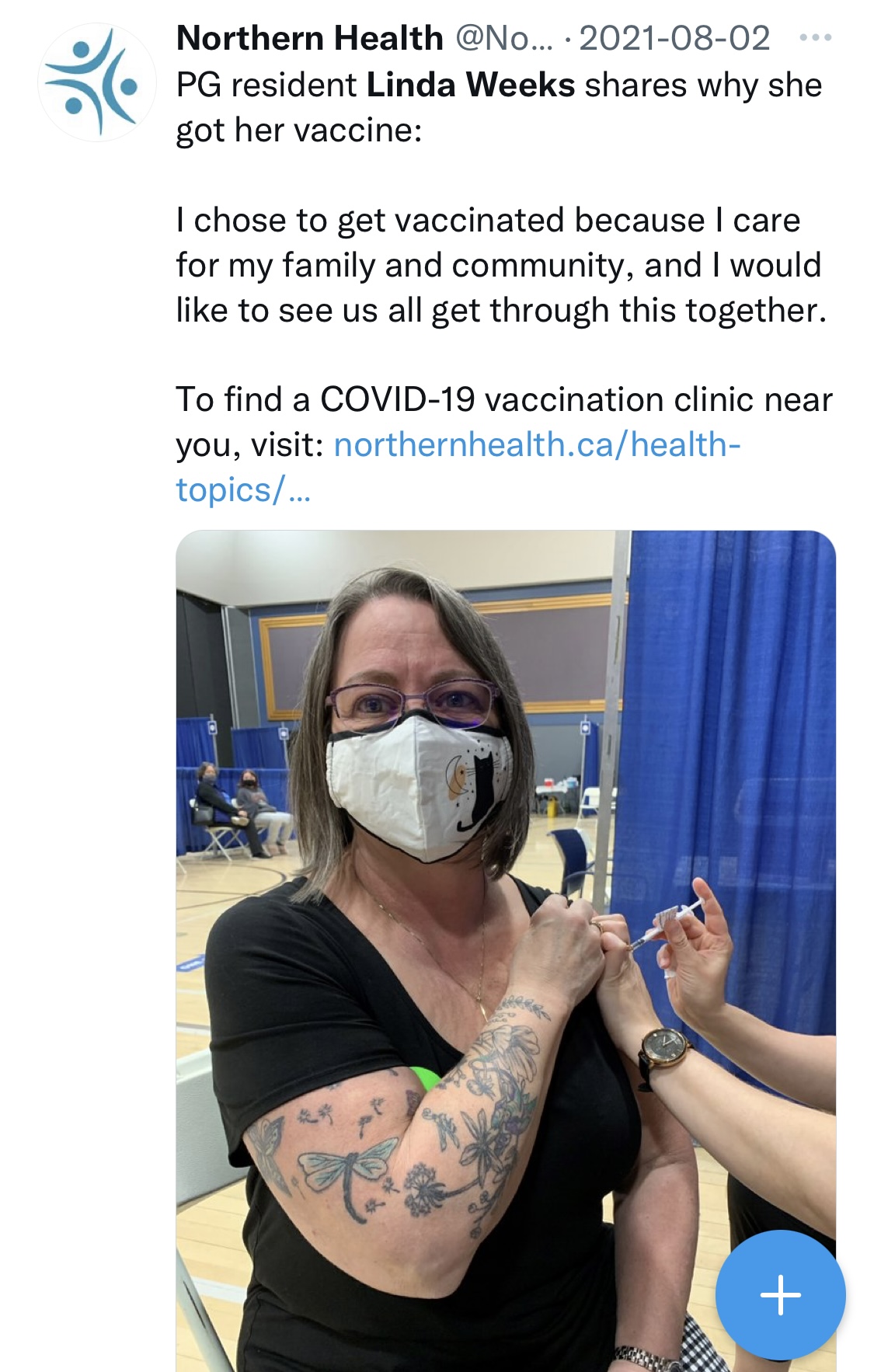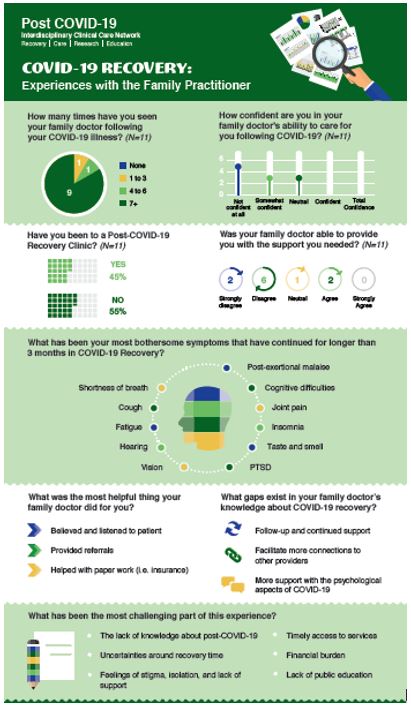Posted • Last updated
Categories: Working Together for Better Health Care
After two full years of co-existing with COVID-19, it may no longer seem like a ‘novel’ virus. With each new wave, new challenges wash ashore, and the societal and health system impacts of COVID-19 continue to evolve. Like health care staff, PVN patient partners rose to the challenge and contributed to COVID-19 response efforts in a myriad of ways over the last year. Here are a few examples:
Priority Setting – Understanding the Problems at Play
Island Health’s COVID-focused Patient Partner Group started in the spring of 2020 and has continued for the last two years to ensure the voice of patients regularly informs the new and emerging priorities and work plans that arise as Island Health responds to COVID-19. The meetings are hosted by the VP of Pandemic Planning and include close to 20 patient partners. The group meets regularly via Zoom to provide feedback and advice on issues such as the Island Health visitor policy, Site Ambassador training requirements, vaccine rollout and more.
Communication & Knowledge Translation
Recognizing the ongoing need to develop and share critical COVID-19 information with the public, the BC Centre for Disease Control (BCCDC) approached the Council in early 2021 and together assembled the Knowledge Translation User Review group: 37 PVN patient partners who have been ‘on call’ to review and provide feedback on public-facing COVID-19 materials as they are drafted. To date, the group has provided valuable opinions and feedback as public consumers for many initiatives.
The first was the BCCDC School Microsite, a section on the BCCDC website housing information and resources about health and safety measures in kindergarten to grade 12 schools and what happens if there are COVID-19 cases. BC was one of the only provinces able to keep schools open for in-person learning last year, and the groups’ contributions to clear information on the site helped students, parents, teachers and administrators to all play their parts to ensure it. This microsite was later seen as a gold standard when developing sites for post-secondary institutions. The review group, as well as some Indigenous patient partners through PVN, were also asked to identify questions they had regarding the safety, registration and regulation of vaccines, and provide feedback on draft messages regarding COVID-19 vaccination for children 5-11.
“The group has been invaluable in providing real-time, thoughtful and realistic feedback on the knowledge translation products created across the province for COVID-19. The rapid response group ensures that we are sharing messaging that makes sense to the audiences we are trying to reach, and that we are ensuring an equitable approach to our work,” said Katie Fenn, Director, Quality, Safety & Accreditation, BCCDC.

Immunization Campaign Promotion
To support the immunization campaign, eight PVN patient partners responded to Northern Health’s call for ‘vaccine testimonials’ and lent their names, photos and personal motivations for vaccination to be used in communication efforts across the north to encourage fellow citizens to get vaccinated.
Technology
The province has embraced a variety of technology mediums to reach and exchange information with the public about COVID-19. In the spring of 2021, for example, the Ministry of Health reached out to PVN when the public needed vaccine information and a way to book immunization appointments, in addition to information about symptoms, testing and isolation. Through the COVID-19 Immunization Digital Supports Review engagement, the Ministry of Health shared prototypes of the Immunization Digital Platform with a group of 13 PVN patient partners who provided feedback on ease-of-use in a series of online 1-1 meetings.
Chronic Symptoms Following COVID-19
The last year also brought increased awareness to the reality that, for some people, COVID-19 infection results in persistent and disabling symptoms and ongoing care needs. Sometimes referred to as “long COVID-19” or “post-acute COVID-19 syndrome”, there are a growing number of people affected by a broad cluster of respiratory, cardiac and mental health symptoms who need care and support.
Back in 2020, PHSA launched the Post-COVID-19 Interdisciplinary Clinical Care Network (PC-ICCN), a partnership with regional health authorities, patients and research organizations, to support clinical care, education and research to help people with persistent symptoms of COVID-19.

One project stemming from the PC-ICCN, with funding and collaboration from Shared Care (a partnership of Doctors of BC and the Ministry of Health), and financial and project management support from Providence Health Care, was the launch of the Post-COVID-19 Collaborative Care initiative: a group of family and specialist physicians from the Lower Mainland working together to identify the needs and gaps in communication, referral and follow-up care processes for adults who have had COVID-19. Two PVN patient partners joined the team to share their lived experience with COVID-19, identify gaps and propose action plans.
In the spring of 2021, the Post-COVID-19 Collaborative Care initiative team invited 18 patient partners to a focus group to share their lived experience with COVID-19 lasting more than three months, to inform the development of an educational program: BC ECHO for Post-COVID-19 Recovery. This educational program was designed for family doctors and other health care providers to support their patients who are struggling with their COVID-19 recovery. The patient partners’ feedback (see infographic below) helped the group clarify their understanding of what patients need from family physicians, and care provider knowledge gaps regarding post-COVID-19 syndrome. For example, two of the commonly mentioned symptoms were memory problems and PTSD. As a result, one of the education sessions focused on the mental health perspective of COVID-19.
The curriculum and learning objectives were approved for accreditation through UBC Continuing Professional Development (CPD), and the free virtual learning community is now up and running with monthly 1-hour education sessions scheduled through July 2022.
“Patient engagement has been central to the network since inception. This allows us to learn from and with patients, to understand the needs and identify opportunities for improvement,” shared Michelle Malbeuf, Clinical Operations Lead with the PC-ICCN.
In early 2022, to ensure that services continue to meet the needs of patients, families and caregivers, PC-ICCN worked with PVN to establish the post-COVID-19 Patient & Family Advisory Team comprised of 27 (and counting!) patient partners. In the coming months/years, patient partners on the team will be invited to participate in various ways including education content reviews, the PHSA Post-COVID-19 website redesign, research proposals, clinical care processes, recovery clinic planning, and more.
This story was featured in our 2021/22 Annual Report.


